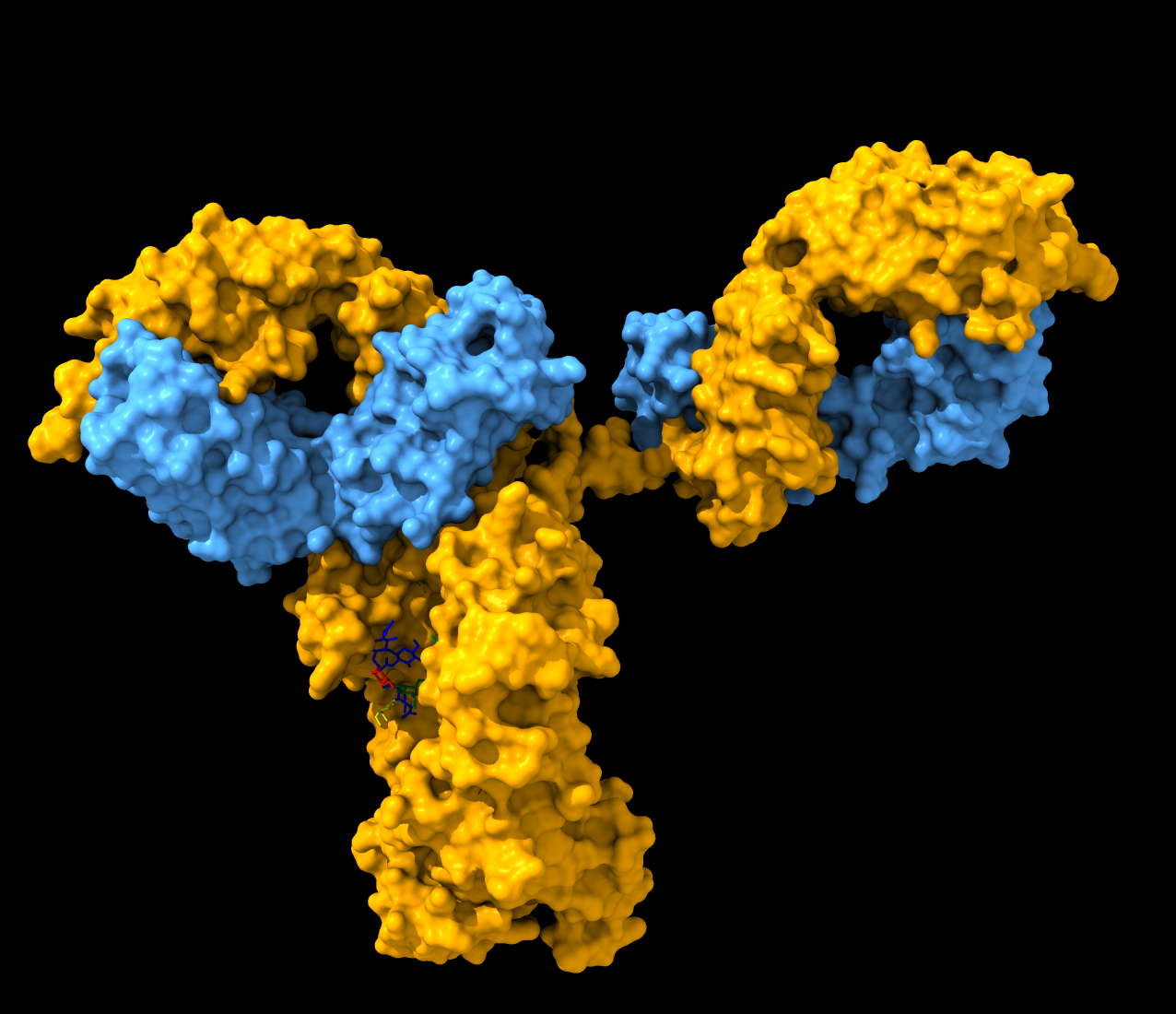Gestur Vidarsson appointed Professor of of Immunoglobulin Biotherapeutics
Gestur Vidarsson has been appointed Professor of Immunoglobulin Biotherapeutics at the Utrecht University Department of Pharmaceutical Sciences. With his appointment, the immunologist, who also works at Sanquin Research, brings along relevant knowledge about the role of antibodies in various diseases. One of his specialisations is the crucial role of sugars in certain antibodies.

Antibodies, or immunoglobulins, are the substances our blood makes in order to suppress germs. With their arms, they can attach themselves to intruders, marking them for elimination. "Antibodies normally recognise anything foreign to the body," says Vidarsson. "They are intended to stop bacteria and viruses, among other things."
Overreaction
But sometimes the body reacts too strongly due to an overactive immune response, making patients critically ill, as is the case in serious COVID-19. Vidarsson's goal is to understand how this overreaction occurs and in which types of patients. "In our work we focus on the most common type of antibodies, the type G antibodies, or IgG. We want to utilize antibody properties that can define patient risk groups for diagnostics, enabling evidence-based treatment options.
At the same time, the information gained in this research can be used for therapeutic purposes in other areas. "This includes the pharmaceutical industry which uses IgG-antibodies as either anti-inflammatory agent in autoimmune diseases such as rheumatoid arthritis, or to provoke tumor cell death in certain types of cancer."
People who build in less fucose in their IgG antibodies can become seriously ill from corona as a consequence of their strong immune response.
Fucose determines strength immune response
The strength of the immune reaction does not always depend on the quantity of antibodies someone makes, but mainly on the composition of the antibody. A crucial role is reserved for a - seemingly - simple component: the sugar fucose. Vidarsson: "In most immune reactions, fucose is built into the antibodies, while in other responses, it is not. This tendency depends on the foreign invader, but on individual patients, too. When fucose is not built in, a stronger immune response occurs."

About 15 years ago, Vidarsson and his colleagues discovered that lack of fucose in the mother's antibodies cause the immune response called rhesus disease, which can occur when a rhesus negative woman gives birth to a rhesus positive child. "This too strong type of defense is very undesirable and even life-threatening for the child. And yet it has persisted throughout evolution," says Vidarsson. "The reason for this is probably that it does play an important role in counteracting dangerous infectious diseases. My group recently discovered that fucose is not built into IgG antibodies our body depends on to fight malaria: in order to effectively fight that parasite - the human body needs that fierce immune response."
According to Vidarsson, this knowledge can also be used in boost vaccines and to fight cancer cells. "If you take the fucose out of antibodies that are designed to kill cancer cells, you can get an amplifying effect.” In the spring of 2020, Vidarsson and his colleagues also investigated the immune response of COVID-19. "There too, fucose plays a role. People who build in less fucose in their IgG antibodies can become seriously ill from corona as a consequence of their strong immune response."
Collaboration with Sanquin
Gestur Vidarsson will work one day a week at the UU and four days at the Sanquin Research in Amsterdam. "Some of my lab activities will take place in Utrecht. It's great that we can combine our specific knowledge. Together, we will be able to speed up the research." In addition to research, Vidarsson will also provide education. "I think it is important that we also involve the current and future generation of students in our work, to share our knowledge about the multifaceted world of antibodies."

